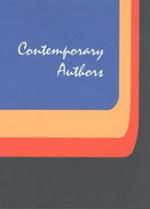|
This section contains 624 words (approx. 3 pages at 300 words per page) |

|
[Brodsky] is no doubt the most important name in contemporary Russian poetry, both at home and in emigration. It is no new reputation, but stems from the 1960s, when the intensity and severity of his lyrics, read mainly in manuscript, awakened memories of dormant muses, of Annensky, Mandelstam, Tsvetaeva. His poems to John Donne and T. S. Eliot were striking, especially coming from a young Russian poet. (p. 129)
Konec prekrasnoj èpoxi (The End of a Fine Epoch) comprises poems written in the period 1964–71 and, for its time span and diversity of style and theme, is probably the best collection for making first acquaintance with Brodsky. The early poems seem inferior to those collected in Ostanovka, but Brodsky's own voice is more intimate, his view of the world more openly exposed. By placing a fine and characteristic lyric from 1971 first in the collection, it would seem that he wishes...
|
This section contains 624 words (approx. 3 pages at 300 words per page) |

|


